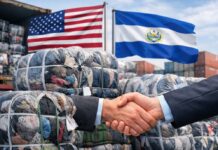Leaders from around the globe, along with industry executives and engaged citizens, have gathered in Geneva for ongoing discussions regarding a Global Plastics Treaty. The treaty, initiated by the UN Environment Programme, aims to establish a global framework to combat plastic pollution. The first meeting of the Intergovernmental Negotiating Committee (INC) was held in Uruguay in late 2022, and the current negotiations in Geneva are expected to lead to a final draft of the treaty.
This agreement is intended to address the entire lifecycle of plastics, encompassing production, recycling, and waste management. However, it notably overlooks a major sector of the petrochemical industry: textiles. Petrochemicals, which are derived from fossil fuels like oil and natural gas, are fundamental to many everyday products, including plastics, fertilizers, detergents, adhesives, and synthetic fibers. By 2024, the global petrochemical market is projected to be valued between $650 billion and $660 billion, accounting for 16% of global oil demand, which is forecasted to rise to 50% by 2050, according to the International Energy Agency.
The textile industry is intricately connected to the petrochemical supply chain. Synthetic fibers, especially polyester (55%), nylon (5%), and acrylic (2%), make up nearly two-thirds of global textile production. These fibers originate from essential petrochemicals like ethylene, paraxylene, and terephthalic acid, which are produced during the refining of crude oil. Polyester, which is made from ethylene glycol and terephthalic acid, is the most commonly used fiber worldwide, representing over 80% of synthetic fiber production and more than 55% of total fiber production. In 2022, the global polyester fiber market was valued at $100 billion and is anticipated to surpass $150 billion by 2030. Estimates indicate that fiber and fabric production utilizes between 10% and 15% of total petrochemical output, making textiles a significant segment of the petrochemical industry, as noted by the Institute for Energy Economics and Financial Analysis.
Synthetic textiles create a critical connection between the petrochemical sector and plastic pollution. As the demand for synthetic fibers increases and oil producers look for new markets, the potential for pollution from textile production grows. Despite this, synthetic textiles have often been excluded from international laws aimed at addressing plastic waste. Present drafts of the UN Global Plastics Treaty have not prioritized textiles, which limits the effectiveness of pollution control efforts and permits a major outlet for petrochemicals to escape regulation. If textiles are not included in the treaty, initiatives to curtail plastic production could be undermined by companies diverting their production to fiber manufacturing.
For the treaty to succeed, it must be comprehensive. Including textiles is essential to achieve the environmental, legal, and economic objectives outlined in the agreement.
































